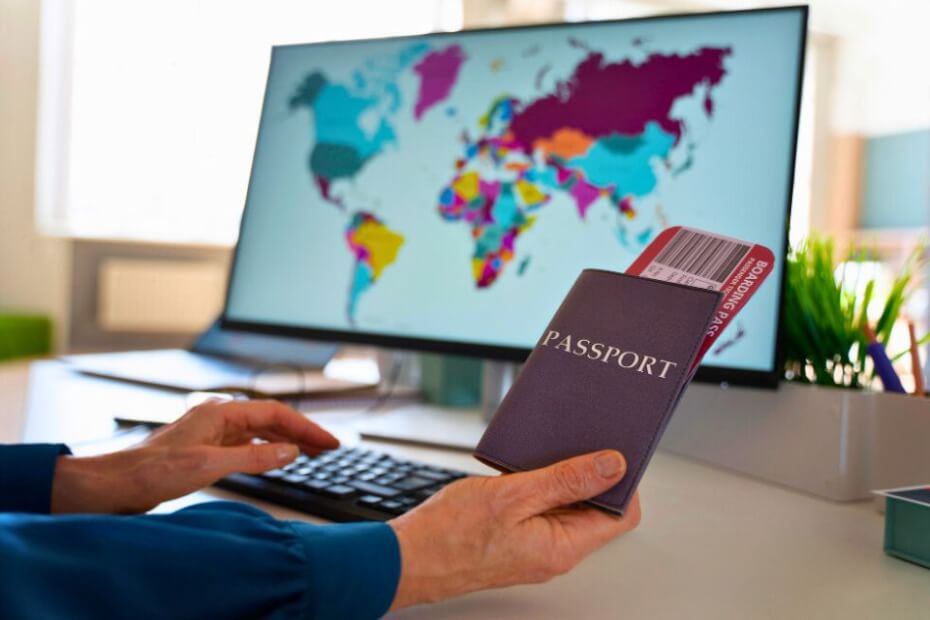
All travellers who do not need a visa to visit the United Kingdom (UK) must soon obtain an Electronic Travel Authorization (ETA) before traveling to England, Wales, Scotland, and Northern Ireland.
The UK ETA costs £10 per application and is valid for two years, allowing multiple short visits of up to six months.
This includes visiting the UK for leisure, permitted business activities, and short-course study. Transit travellers and temporary creative workers staying in the UK for up to three months under the Creative visa concession must also have an ETA.
Still unsure if you need a UK ETA? Here are more details on who requires an ETA or is exempt and whether one needs a visa instead.
Who can travel to the UK without a visa?
Non-visa travellers include citizens of countries with visa waiver status with the UK. This includes European Union (EU) citizens and citizens of other countries, such as the United States of America (USA), Canada, Australia, and more.
The final list of countries whose citizens need an ETA has yet to be confirmed. To start with, travellers from the following 90 nations must apply for and receive a valid UK ETA before traveling to the UK.
- Papua New Guinea
- Peru
- Poland
- Paraguay
- Portugal
- Qatar
- Romania
- Saint Kitts and Nevis
- Saint Lucia
- Saint Vincent and the Grenadines
- Samoa
- San Marino
- Saudi Arabia
- Seychelles
- Singapore
- Slovakia
- Slovenia
- Solomon Islands
- South Korea
- Spain
- Sweden
- Switzerland
- Taiwan
- Tonga
- Trinidad and Tobago
- Tuvalu
- United Arab Emirates
- United States of America
- Uruguay
- Vatican City
Currently, only citizens of Bahrain, Kuwait, Oman, Qatar, Saudi Arabia, and the United Arab Emirates (UAE) must have a valid ETA to visit the UK. Jordanian passport holders were removed from the eligibility list on September 10th 2024. However, if they have booked a trip to the UK before 10/09/2024 15:00 BST and arrived in the UK before 08/10/2024 15:00 BST, then they will be allowed entry under the UK ETA programme.
Starting 27 November 2024, other non-Europeans can apply for an ETA for travel from 8 January 2025 onwards, when it will be enforced. Similarly, starting 5 March 2025, Europeans can apply for an ETA for travel from 2 April 2025 onwards, when it will be enforced.
The UK Home Office is gradually rolling out the ETA on a nationality basis to ensure a smooth transition. By April 2025, all nationalities that travel without a visa to the UK, will need to apply for an ETA.
Who does not need an ETA to travel to the UK?
Once the system is fully operational, the UK government expects 30 million ETA applications annually. Still, some individuals are not required to present an ETA when traveling to the UK. These include:
British passport holders
Travelers with British passports do not need an ETA to travel to the UK. All British nationals with a valid British passport are exempt from the ETA scheme.
British Overseas Territories Citizen passport holders
The updated guidance for ETA exemptions now includes those with British Overseas Territory Citizen passports.
Irish passport holders
Travelers with Irish passports do not need a UK ETA due to the Common Travel Area (CTA) Arrangement between the UK, the Republic of Ireland, and the Crown Dependencies Guernsey, Jersey, and the Isla of Man.
Select legal residents of Ireland
Legal residents of the Republic of Ireland are exempt from the ETA system only if they meet all three conditions. These are:
- They are legal residents of the Republic of Ireland.
- They are non-visa nationals or do not need a visa to visit the UK.
- They are coming to the UK via The Republic of Ireland, Guernsey, Jersey, or the Isle of Man.
All travellers aged 17 and over must show original and valid proof-of-residency documents issued by the Irish government. These include:
- Irish driving license
- Irish learner permit
- Medical card
- GP visit card
- European Health Insurance Card
- Irish Residence Permit
- Permanent Residence Certificate
- National Age Card
Travelers with UK visas
Citizens of countries who are required to obtain a visa for short trips to the UK for up to six months do not need an ETA. Individuals who need a UK visa to work, live, or stay in the country for more than six months are also exempt from the scheme.
Travelers with UK immigration statuses
Those with immigration status in the UK, including those settled and pre-settled under the European Union Settlement Scheme (EUSS), are also exempt from the ETA system.
Proof of a UK immigration status includes a digital record or an eVisa linked to the travellers’ passports. Physical evidence, such as biometric residence permits (BRP), wet ink stamps, or vignette stickers on passports, is also valid.
It’s important to note that physical representations of a UK immigration status will soon be obsolete. Travellers who still carry them must secure an eVisa as soon as possible to avoid travel complications.
Do you need a UK ETA or a UK visa?
Regardless of the country that issued your passport, if you plan to work, live, or stay in the UK or stay for more than six months, you must apply for an appropriate UK visa.

